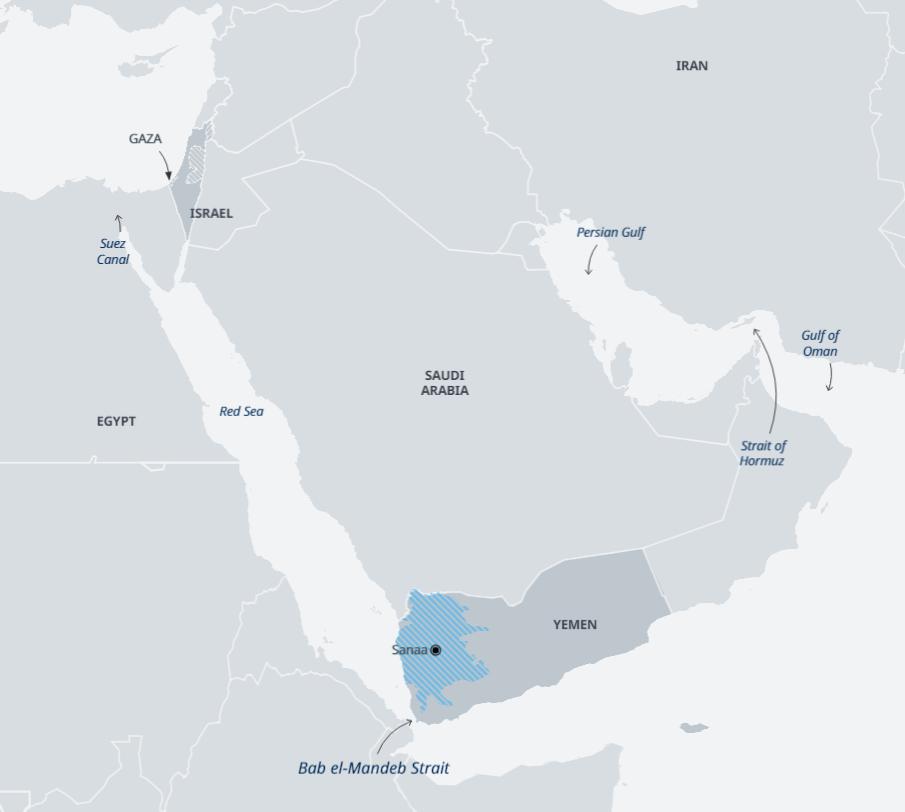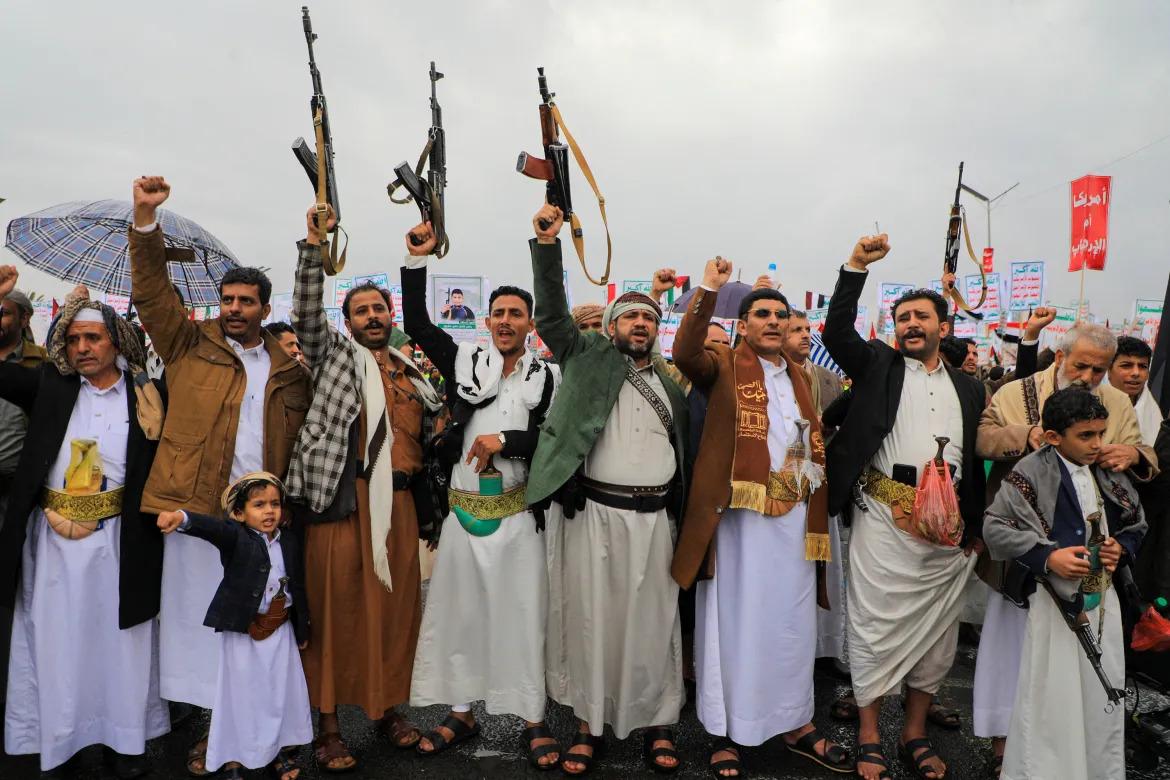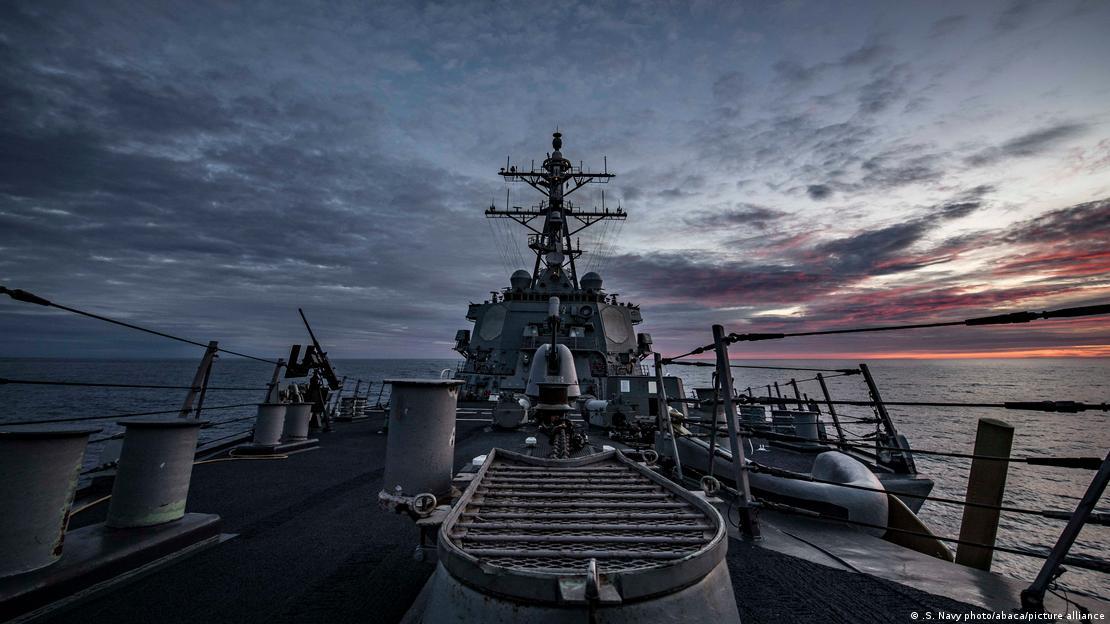Why Arab states did not join the anti-Houthi coalition? Nowadays, war is a luxury
The Red Sea attacks led by the Houthi rebels against commercial vessels resulted in the establishment of the US-led joint naval task force against the rebel forces. Operation Prosperity Guardian (OPG) was unveiled in December 2023 as a multinational coalition to protect ships in the Red Sea.
Since mid-November 2023, the Houthi rebel group in Yemen has been firing rockets and sending drones to harass vessels travelling through the Bab el-Mandeb Strait. According to the Houthi leadership, this won't stop "until the crimes of genocide in Gaza are stopped and food, medicine, and fuel are allowed to enter its besieged population."
As of today, over 20 countries have agreed to join the group. However, a lack of clarity over the operation has created confusion for shipping companies, who have decided instead to re-route their ships away from the maritime passage. Furthermore, apart from Bahrain, none of the U.S. Gulf or Arab allies joined the task force.
This is even though some countries, like Egypt with its extensive Red Sea coast, have much to lose economically from trade disruption. Moreover, the fact that Saudi Arabia and the United Arab Emirates (UAE), two leading regional actors and members of the anti-Houthi military coalition, did not join Operation Prosperity Guardian is quite significant.

Much is at stake economically with the Red Sea's security crisis. Separating the Arabian Peninsula and the Horn of Africa is the Bab el-Mandeb Strait, which links the Indian Ocean and Gulf of Aden to the Red Sea. Roughly 30 per cent of all global containers transit the Bab el-Mandeb and the Suez Canal, as does about 12 per cent of all world trade.
In this context, there could be several reasons why Arab nations are reluctant to join the anti-Houthi coalition in the Red Sea. The first one is the current Saudi-Houthi détente, including its main sponsor – Iran. As such, the Saudis have not joined the naval coalition because they are concerned this would scupper those peace talks and possibly even damage newly relaxed relations with Iran.
The last thing that Mohammed bin Salman, the crown prince of Saudi Arabia, needs is an escalation that disrupts the crucial years leading up to the much-anticipated Vision 2030, an extensive reform plan intended to diversify the national economy.
Consequently, the kingdom opted to stay silent amid the Red Sea crisis, hoping that its communication channels with Iran—via a China-brokered deal announced in spring 2023—and the Houthis will shield it from regional turmoil and future Houthi attacks.

Amid the naval operation, the Houthis and Riyadh opted to continue their discussions, preferring not to let the Red Sea crisis interfere with their progress. Following the U.S.-British strikes, the Saudi Foreign Ministry expressed its “great concern” and called for “self-restraint” to avoid an escalation.
Unlike other Arab fellows, Bahrain – the major US non-NATO ally, joined the naval coalition on the first day of operations. Bahrain has long perceived an existential threat from Iran that shapes its security stance, so by providing a home for U.S. assets, Bahrain gains protection and relevance, which is another layer beyond traditional security protection.
Another reason Arab states avoid the naval coalition is the recent standoff between the U.S. and the Gulf monarchies regarding security guarantees. For example, the UAE several times indicated that it is not satisfied with Washington's security response in the Middle East, which has been deemed too weak in recent years.

Although the U.S. maintained a solid military presence in the region, the Gulf monarchies demanded it to boost the military presence significantly amid rising threats from Iran and its proxy forces.
However, now, with the Red Sea security being under serious threat as a result of the Israel-Hamas war and the Western allies’ military operations, regional security has come under severe threat with major geopolitical ramifications. Therefore, leading regional Arab states comprehend that the involvement in the US-led coalition will ignite the situation more.
Nevertheless, the Kingdom of Bahrain highlights the existing threats emancipating from pro-Iranian proxy groups. Moreover, considering Bahrain's history, weight, and role in the region, it is clear that Manama has evaluated its participation as an opportunity capable of guaranteeing its security and the support of the U.S. military umbrella should the security of the Gulf region deteriorate.








